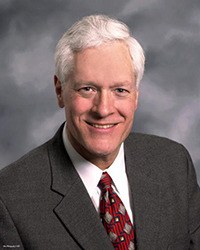City leaders may decide Tuesday the fate of an ordinance that purports to meet the challenges posed by marijuana businesses in Auburn.
They could adopt locally enforceable state marijuana business licensing requirements while keeping the City out of any regulatory or permitting roles. Or they could extend the moratorium that’s been in effect for a year and is about to expire.
“By adding to the City Code the requirement that (such businesses) comply with state regulations,” City Attorney Dan Heid explained to members of the Planning and Community Development Committee last Monday at City Hall, “that makes it enforceable by the City. If you didn’t do that, then … leaving enforcement to the state may be less than successful.”
Enforcement, Heid added, could come down on a business that’s set up shop where it shouldn’t be, that doesn’t have the required security, that doesn’t have the cameras it should have, that doesn’t meet sign requirements, that doesn’t meet all the state regulations and statutes, that isn’t keeping proper records. Failing to meet those requirements would constitute violations under City code, even though the City would not be the licensing agency.
Washington voters passed I-502 by a comfortable margin in November 2012, legalizing recreational marijuana throughout the state.
In Auburn, 54 percent of the voters said “yes.” Or, to put it in eye-opening terms, while 80 percent of the City’s 61 precincts voted yes to I-502, a mere 12 said no. And Auburn’s margin, Heid noted, was much closer than it was in many other jurisdictions.
In July 2013, the state used a lottery to grant two retail recreational marijuana businesses authorization to open in Auburn along with producers and processors.
To buy the City and Auburn’s Planning Commission time to study and address potential challenges posed by recreational marijuana businesses, the City Council on Sept. 16 2013 slapped a one-year-long moratorium on the manufacturing, processing and sale of recreational marijuana within city limits.
The moratorium expires Sept. 16, one day after the council’s second meeting next month.
Although the City Council presented the Planning Commission with three options, the commission soon dropped the third option from consideration because of the legal risks it entailed. Here are those options:
• Option 1: outright banning the processing, producing and sale of recreational marijuana inside City limits;
• Option 2: adopts the state’s enforcement tools but does not add any of Auburn’s own. For instance, the City wouldn’t add a city business license on top of the state business license requirement;
• Option 3: Would have added City regulations via licensing or additional zoning regulations
The Planning Commission hosted a public workshop in May and a public hearing in the first week of August. Recently, it finished its work by recommending that the City Council adopt Option 2.
Under Option 2, Heid said, the City can stay true to its own code provisions that prohibit it from permitting activities that are illegal under state or federal law. The marijuana initiative presents the only case, he added, where state statute authorizes a business that is illegal under federal law.
“Under Option 2, we are not the permitting agency, we are not the regulatory agency,” Heid said. “The initiative included in its language a lot of regulations. That’s where the map came from, because it had the setbacks. You cannot have these businesses in residential areas, so there’s an awful lot of property that’s not going to be used. But there aren’t setbacks for residential as such, so you look at the zone as it is, unless it’s close to one of the accepted areas.”
A state Liquor Control Board regulation requires that any retail or manufacturing operations be at least 1,000 feet from schools, parks, transit stations and daycares. The City consequently produced a map that, given this requirement, leaves only the M1 and M2 industrial and warehousing zones open to producers and processors, while restricting retail to the M1 and the three commercial zones.
By keeping the City from being the regulatory agency — and consequently preventing it from permitting anything federal law says is illegal— while allowing it to add code provisions to enforce violations of state licensing, the City under Option 2 could prosecute anybody who violates state licensing requirements, Heid said.
Heid noted that a would-be proprietor who hopes to open a retail marijuana business in the City of Fife recently sued that City, which has banned retail marijuana inside City limits.
The ACLU and state Attorney General Bob Ferguson have weighed in on the side of the proprietor. The outcome of the case is sure to have important consequences for Auburn.
Should the council extend the moratorium to wait and see what happens in the Fife case, Heid said, council members need to know ahead of time that there’s no telling how long the case could linger in court. And a court could rule that the City is merely stretching the process out indefinitely to avoid taking action, a tactic that courts in other jurisdictions have shot down.
Recently the City asked the state Liquor Control Board permission to deny a permit request to open a marijuana business as long as the moratorium was in effect. On Monday, Mayor Nancy Backus got the answer, as follows: “The Liquor Control Board cannot support denial of the application based on a local moratorium.” An additional moratorium, Heid cautioned, may make no difference to the state.
“The voters voted for this, and we need a reasonable time to implement it,” said Councilmember Largo Wales.
The City could choose to extend the ordinance up to six months, with the proviso that it would expire whenever the council adopts its ordinance.
If the City chooses not to act on the ordinance on Tuesday, it must extend the moratorium at its Sept. 15 meeting, because the ordinance, which expires Sept. 16, cannot be effective until the moratorium expires, said Kevin Snyder, Community Development and Public Works Director.


